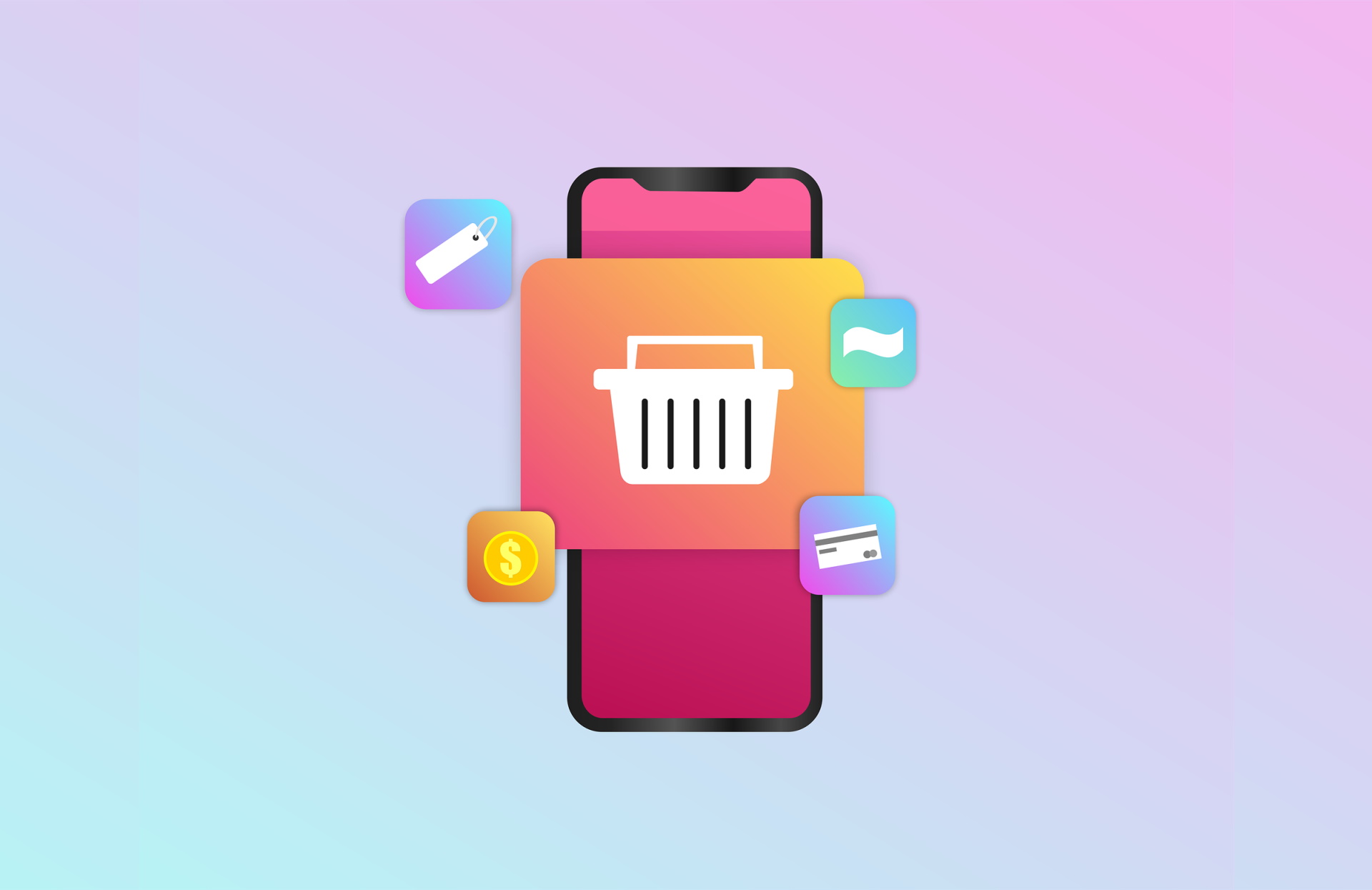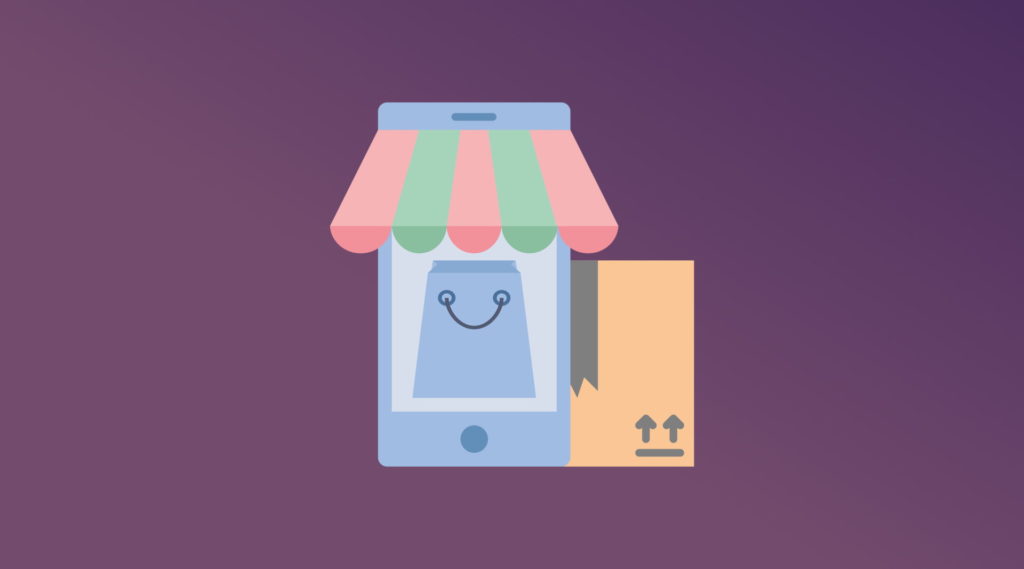Dropshipping vs eCommerce Fulfillment

Contents:
If you are starting your journey in eCommerce as a young tradesman or woman, one of the first things you are likely to dive into is how to choose a suitable business model. Luckily, eCommerce gives you many opportunities to join the game, so you just have to know the rules and trim the sails to the wind to avoid getting lost in this variety of massive platforms and online shops.
In any case, there are two eCommerce strategies: fulfillment vs shipping. After reading this article, you will find out how to choose between both and which exactly suits you the most.
What is eCommerce fulfillment?
eCommerce fulfillment or eCommerce marketplace is all about buying goods, vending them online, and finally, dealing with package and distribution of these items. A distinctive feature of this model is that retailers often hold a warehouse or storage of products in large quantities. You know many of the world’s biggest online shops with billions in turnover every year, like Amazon or Alibaba.
The most significant thing is that you can work with as many merchants or drop shippers as you want, as they take on the role of a middleman. This way, they become your best promoters and logisticians. At the same time, people working in fulfillment should be prepared for significant capital injections, while going into this business without some resources won’t be possible.
What is dropshipping?
In a nutshell, dropshipping works as an eCommerce fulfillment sale, but with the main difference - you don’t deal with direct storage of items. You don’t have to pay for the warehouse or worry about distribution. Though, there may be some exceptions here. Dropshippers have to create an eCommerce website and set up paid advertisements. Also, the list of their duties includes customer support and maintenance. So, basically, you have to be aware of all processes and accept product fulfillment.
Dropshipping gained popularity, mainly because anybody who has access to the computer can manage it. The other positive aspect is that you don't need much money to invest in, and typically, it is the customer who pays the order through you, and only then you pay for the goods to the retailer.
Pros and cons of both
Now, when you see the difference between dropshipping and eCommerce, it’s time to speak about the advantages and disadvantages of each. Let’s start with eCommerce fulfillment.
eCommerce fulfillment involves many, not only financial but personal outlays. It is about owning your business. Also, that means you will have more control over the whole process but more responsibility at the same time.
That is why, if you have always dreamt about creating your brand and have some products to offer to the world, eCommerce is a great option. In that case, producing your unique items or ideas can be even more profitable. Still, you have to consider all the risks that can appear and have a clear understanding that you can burn out.
Looking from another perspective, consider that even if you sell the products that you do not manufacture, you can have a significant profit. Sometimes you can begin by having only a few premises or a room at your home, and then with the growth of your turnover, look for a bigger compartment.

Dropshipping has similar goals in many cases, but on the contrary, to the fulfillment, you won’t need a starting capital to fit in. You don’t have to look for a storage place for orders or think about modernizing the package to attract new clients. Anyway, that can be a great starting point for anyone who wants to understand the system better and not lose much money if the original marketplace fails.
At the same time, in this dropshipping vs eCommerce war, you have to realize that dropshipping requires giving most of the control over things like quality, finances, delivery, etc., to the head website. So, you have to find a reliable fulfillment partner that will be ready to go further with you. Also, if you are planning to make some kind of your own store, be prepared that it’ll be difficult as all of the products will have another brand name on them.
Dropshipping Vs. E-Commerce Fulfillment: Which One To Choose for Your Business?
We reached out to numerous entrepreneurs to gauge their opinions on whether they would advocate for initiating a business venture through dropshipping or eCommerce fulfillment, and to understand their reasons behind their preference. Here are their insights.
E-Commerce Fulfillment Enhances Customer Experience
From my extensive background with First Pier as an E-commerce Growth Specialist, I've had the privilege of observing the pivotal decision points entrepreneurs face when choosing between dropshipping and e-commerce fulfillment. My experiences, particularly with Shopify's extensive tools and resources, underline the significance of these choices in determining the trajectory of an e-commerce venture.
One illustrative case from my tenure involved advising a startup that initially leaned toward dropshipping due to its lower startup costs and overhead. We conducted a thorough analysis and found that while dropshipping offered a quicker entry point into the market, it significantly limited their ability to control product quality, customer service, and brand perception—elements crucial for long-term success. After transitioning to e-commerce fulfillment, they experienced a substantial improvement in customer satisfaction and retention, thanks to enhanced quality control and personalized packaging. This change also positioned them better for scaling, as they could now manage inventory more effectively and introduce new products rapidly based on customer feedback.
Moreover, engaging in e-commerce fulfillment empowered us to execute targeted marketing strategies more effectively. For instance, leveraging Shopify’s integrated marketing tools allowed us to craft highly personalized email marketing campaigns, which were instrumental in driving repeat purchases. The control over the customer data, gleaned from direct interactions, enabled us to refine our segmentation and targeting, leading to higher conversion rates. This strategic use of Shopify's ecosystem exemplifies how e-commerce fulfillment, despite its initial complexity and resource demands, offers a richer canvas to paint a brand's story and cultivate a loyal customer base. This experience solidifies my viewpoint that for businesses keen on building a strong brand and deeply understanding their customers, e-commerce fulfillment offers unrivaled advantages.
Steve Pogson, Founder, First Pier
Dropshipping Validates Products with Minimal Risk
I would recommend starting with dropshipping over e-commerce fulfillment. Dropshipping allows you to test product-market fit with minimal risk. You don't have to invest in inventory upfront and can pivot quickly based on customer feedback.
For example, early in my first company, we started with dropshipping to validate a product concept. Within three months, we had over $100,000 in sales and clear customer validation. At that point, we invested in inventory to scale.
Conversely, with e-commerce fulfillment, you have to purchase inventory upfront, which requires significant capital and risk. If the product doesn't resonate with customers, you're left with excess inventory and sunk costs. Dropshipping mitigates this risk and allows you to get to market quickly to start learning. Once you have a proven, scalable concept, you can invest in fulfillment to improve margins and scale the business. But in the early days of a startup, dropshipping is a superior model in my experience.
Mac Steer, Owner and Director, Simify
E-Commerce Fulfillment for Product and Service Control
If you want to have more control over your products and the consumer experience, I recommend starting with e-commerce fulfillment. When I started Festoon House, I chose e-commerce fulfillment because it allowed me to handle inventory, quality control, and shipping directly. This hands-on approach allowed me to ensure product perfection and provide extraordinary service to my consumers, resulting in increased trust and loyalty.
One specific recommendation I'd like to offer is to focus on developing a strong brand and client base from the start. With e-commerce fulfillment, you can establish a distinct brand identity and build meaningful interactions with your customers. By continually providing excellent products and experiences, you will not only attract new clients but also encourage return business and word-of-mouth recommendations.
So, if you're thinking about beginning your own business, carefully analyze the advantages and disadvantages of dropshipping versus e-commerce fulfillment. While dropshipping is convenient and low-cost, e-commerce fulfillment provides more control and opportunities for brand growth. Ultimately, it's about selecting the method that best fits your goals, resources, and vision for success.
Matt Little, Owner, Festoon House
So, what?
eCommerce vs dropshipping is the most discussed question of the last ten years. Somebody can find something attractive in growing their brand online store, and somebody will enjoy promotion and managing customer relations. Are you looking for a new audience and want to collaborate with other sailers or do you just need a more narrow-profile approach and more laid-back assistance?
It doesn’t matter what you will choose, while Wiserbrand will always give you a hand of help in this eCommerce chaos.
